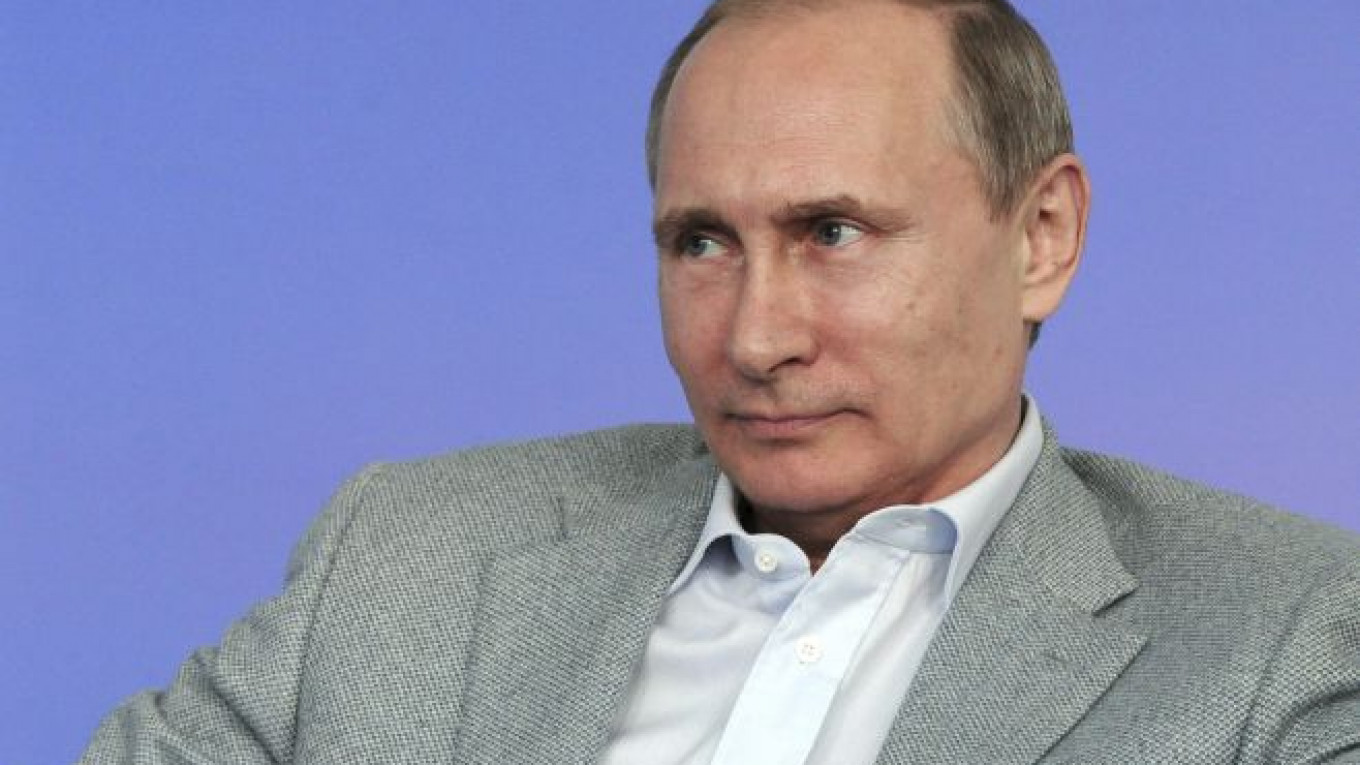In September 2004, in the aftermath of bombings in the Moscow metro and the horrific school seizure in Beslan that left 334 dead, Russian President Vladimir Putin announced his plan to radically restructure Russia's political system by ending popular elections for governors.
Without offering a specific explanation for how the change would defeat terrorism and unify the country, Putin characterized the plan to appoint all governors and create a "single chain of command" as "enhancing national cohesion in the face of a terrorist threat … in order to strengthen the unity of the country and prevent further crises."
As the United States and Europe were engaged in the ongoing "war on terror" and sought greater cooperation with Russia in their efforts to prosecute that war, it was not difficult for Putin to evade criticism of his new reforms.
In contrast to the rhetoric employed when Putin first became president in 2000, Kremlin theorists now began referring to Russia's changing form of government as "sovereign democracy."
Though Putin always advocated the establishment of a strong Russian state, his emasculation of the State Duma and the takeover of independent media outlets by Kremlin-friendly companies ensured that penetrating criticism or serious opposition to the regime would not actually challenge his power.
The idea, therefore, of the new "sovereign democracy" was to maintain the outward appearance of a democratic form of government while providing security, accommodating economic growth, and undercutting actual democratic institutions.
By 2006, a parallel change in Russia's foreign policy orientation was evident. No longer expressing a willingness to integrate into the Western community, political leaders in Moscow began speaking about Russia as an independent center of power. Calling for a "geopolitical triangle" between Russia, the EU and the United States, Foreign Minister Sergei Lavrov emphasized Russia's potential role as an international mediator. In a December 2006 article for the Kommersant newspaper he wrote, "Russia … cannot take anybody's side in the conflict between civilizations. Russia is prepared to be a bridge."
According to political analyst Lilia Shevtsova, subscribing to Western values had come to be "regarded by Russian politicians as an ideological basis for defeatism and as a rejection of Russia's own identity and sovereignty."
So, what vision for the future replaced Western integration in the minds of Russia's political elite? In a word, Eurasianism. Although Russia had formed economic treaties with former Soviet states Belarus, Kazakhstan, Kyrgyzstan and Tajikistan prior to 2000, Putin began to focus Russia's foreign policy on Eurasian integration in 2007, and continued to pursue this strategy following the global financial crisis in 2008. Drawing on the anti-Western ideas of "New Eurasianists" such as Alexander Dugin and Sergei Glazyev, Putin began to replace the rhetoric of Western integration with that of pursuing an independent course, spreading traditional family values and protecting the "Russian world."
Since Putin's return to the presidency in 2012, and especially since Russia's involvement in the Ukraine crisis led to a series of Western sanctions that remain in place today, it seems that Putin now has few options but to continue pursuing Eurasian integration for Russia, providing assistance to and receiving support from Asia's autocratic regimes.
S. Elliott Estebo is a master of arts in law and diplomacy candidate at the Fletcher School of Law and Diplomacy, where he studies international security and U.S. foreign relations.
A Message from The Moscow Times:
Dear readers,
We are facing unprecedented challenges. Russia's Prosecutor General's Office has designated The Moscow Times as an "undesirable" organization, criminalizing our work and putting our staff at risk of prosecution. This follows our earlier unjust labeling as a "foreign agent."
These actions are direct attempts to silence independent journalism in Russia. The authorities claim our work "discredits the decisions of the Russian leadership." We see things differently: we strive to provide accurate, unbiased reporting on Russia.
We, the journalists of The Moscow Times, refuse to be silenced. But to continue our work, we need your help.
Your support, no matter how small, makes a world of difference. If you can, please support us monthly starting from just $2. It's quick to set up, and every contribution makes a significant impact.
By supporting The Moscow Times, you're defending open, independent journalism in the face of repression. Thank you for standing with us.
Remind me later.






